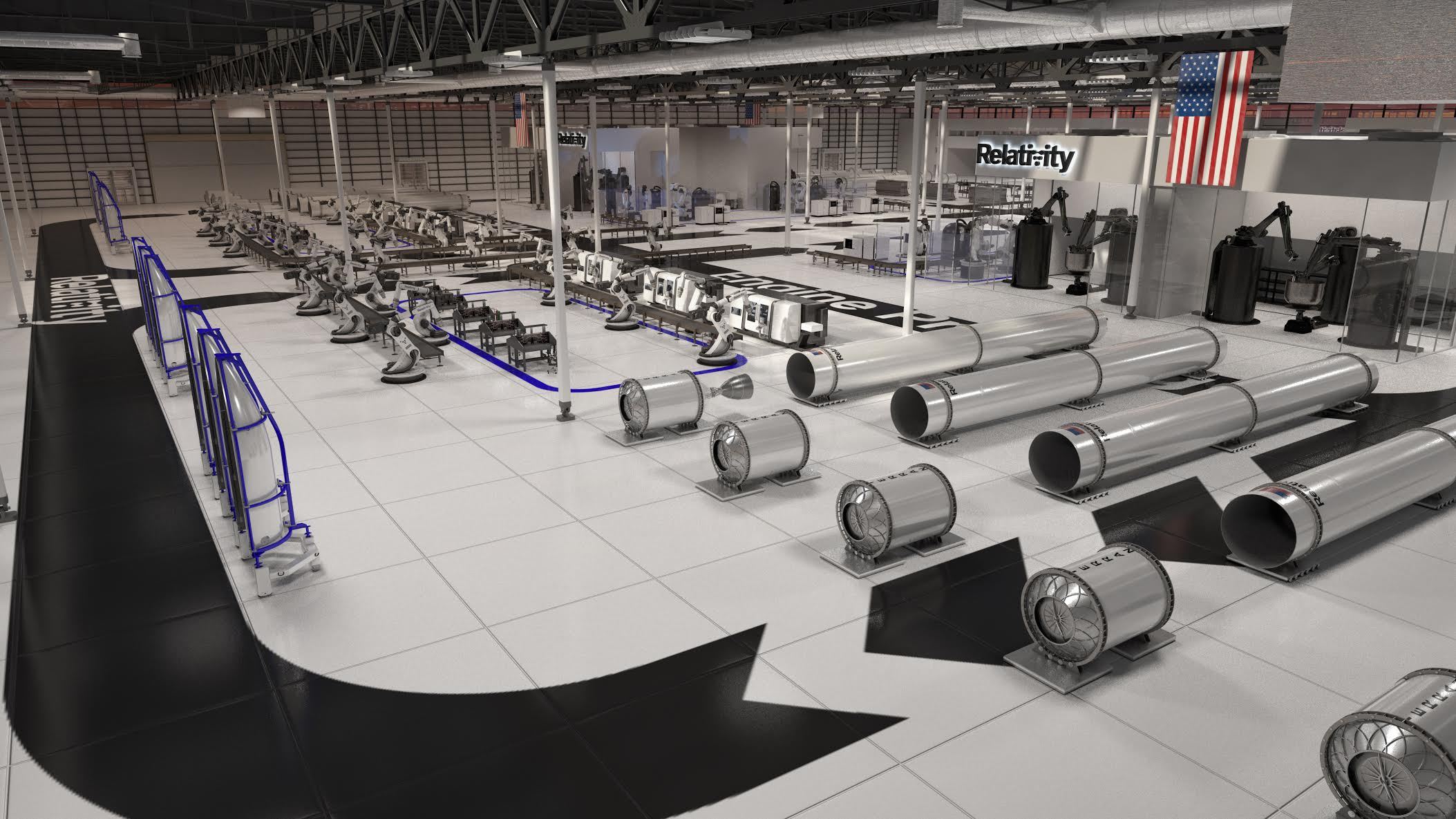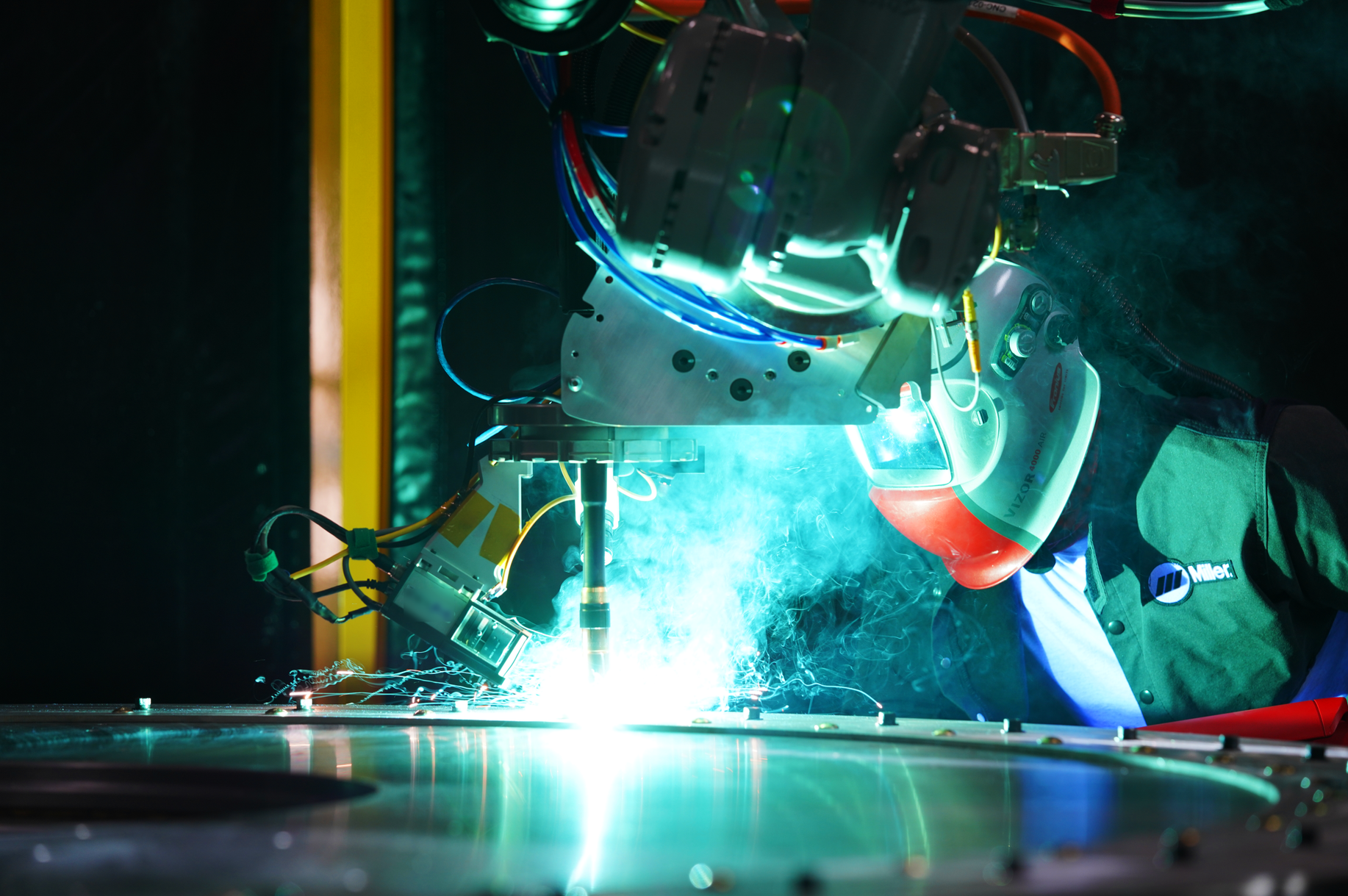Californian 3D printed rocket manufacturer Relativity Space is in the process of raising $500 million in Series D funding, “people familiar with financing” have told CNBC.
The investment will reportedly be led by new contributors Tiger Global and Fidelity, and supported by long standing investors Social Capital, Playground Global, Y Combinator, Bond Capital and Tribe Capital. Following the funding round, which will take Relativity’s total cash raised to $685 million, the company’s value is expected to rise to $2.3 billion.
The aerospace firm is raising the additional funds despite having yet to successfully fire its 3D printed Terran 1 rocket into orbit, although it’s currently slated for a commercial launch in 2021.

A reward for Relativity’s recent progress?
Relativity’s fully-fabricated launch vehicle, which it manufactures in-house using its Stargate 3D printer, has been in development since 2015, but it has gone on to reach several key milestones. The vessel’s 14-foot fuel tank was first produced in 2017, and its AEON 3D printed engine has been hot-fire tested more than 200 times.
Over the last two years, the company has also utilized the cash it raised in previous funding rounds to build on its facilities, and target a lead time of 60 days for each complete rocket. In June 2019, Relativity was granted permission to build a 220,000 square foot autonomous rocket building factory at NASA’s Stennis Space Center.
The complex in Hancock, Mississippi, was awarded to the firm on an exclusive basis, meaning that it’s been able to use the facility for both testing and assembly purposes. Earlier this year, Relativity also moved to a new HQ in Long Beach, California, that has become the center of its business operations as well as its Terran 1 production line.
Inside the 120,000 square foot site, 300 Relativity staff are working to accelerate their additive rocket’s development, and this has been rewarded with several high-profile contracts. Satellite producers Iridium Communications and Telesat have both contracted Relativity’s rocket, to fire their small satellites into lower earth orbit (LEO).
The company has also been selected by Lockheed Martin to 3D print projectiles for an upcoming experimental NASA testing mission. As Relativity closes in on its first orbital spaceflight, news of an ongoing funding round could therefore be seen as a show of confidence from investors in the recent progress it has made.

Relativity’s cash raise: What we know so far
Following the $35 million it raised in April 2018, and the $130 million investment it gained in October 2019, Relativity’s ongoing funding round could take its total cash raised to $685 million. Although the potential $500 million in funding is being supported by return investors such as Jared Leto and Mark Cuban, it’s reportedly being led by first-time contributors Tiger Global.
As the hedge fund of billionaire Chase Coleman, Tiger Global currently manages over $40 billion worth of assets, while fellow new investor Fidelity International looks after $457 billion in client assets. As a result, both potential investors are capable of offering significant backing to Relativity’s spacefaring ambitions.
Once the fundraising is completed in the next few days, the value of Relativity Space is expected to rise to $2.3 billion, making it one of the world’s most valuable private space firms. The company still has some way to go in order to match the value of its competitor SpaceX though, which raised $2.1 billion in funding earlier this year, valuing it at $44 billion.
Relativity hasn’t confirmed or commented on the story thus far, nor has it indicated where the impending $500 million in funding could be spent. Given that the company used its last tranche of investment to move to a new HQ though, it’s possible that any additional cash will be used to continue this expansion.
Ramping up the additive space race
Relativity may have made significant progress in the development of its additive rocket recently, but a number of other aerospace firms are hot on their heels in the race to orbit.
British aerospace company Orbex has announced that its 3D printed rockets will be the first to launch from the UK’s new ‘Sutherland Space Hub.’ When the fabricated projectile is fired in 2022, it will be the first successful commercial spaceflight to ever take off from British soil.
California-based Rocket Lab has now launched 65 satellites, and its Electron rocket has entered final testing ahead of an upcoming mission with the U.S. Space Force. During the expedition, the company’s additive launchers will fire a microsatellite from the U.S. Air Force Research Laboratory’s Monolith program into orbit.
Elsewhere, aerospace firm Launcher has been awarded $1.5 million by the U.S. Air Force to further develop its rocket which reportedly features the “world’s largest liquid rocket engine combustion chamber.” The company has since signed an agreement with the Stennis Space Center, to test its engines there.
To stay up to date with the latest 3D printing news, don’t forget to subscribe to the 3D Printing Industry newsletter or follow us on Twitter or liking our page on Facebook.
Are you looking for a job in the additive manufacturing industry? Visit 3D Printing Jobs for a selection of roles in the industry.
Featured image shows a rendering of Relativity’s autonomous rocket factory at NASA’s Stennis Space Center. Image via Relativity Space.



